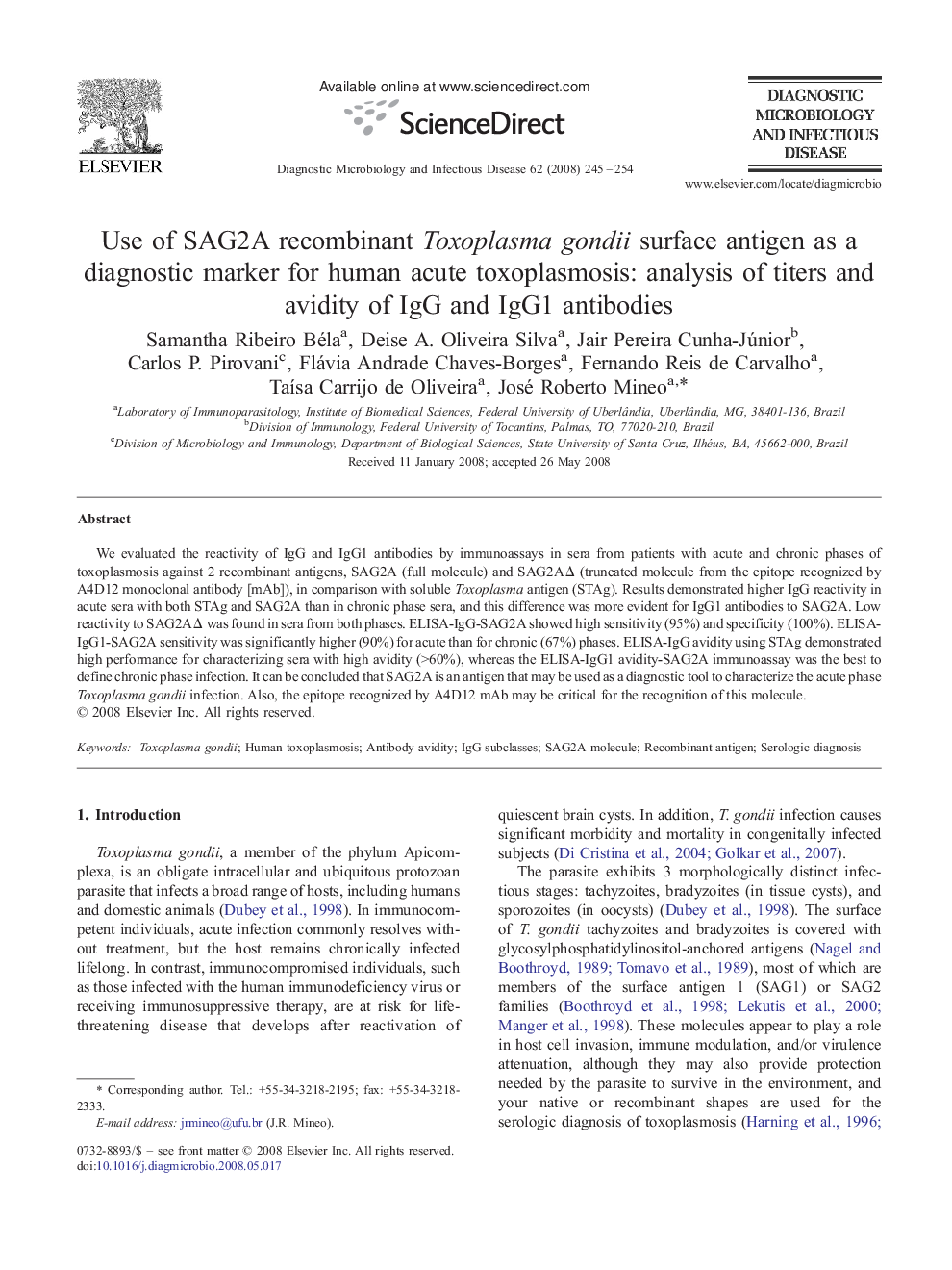| Article ID | Journal | Published Year | Pages | File Type |
|---|---|---|---|---|
| 3348076 | Diagnostic Microbiology and Infectious Disease | 2008 | 10 Pages |
We evaluated the reactivity of IgG and IgG1 antibodies by immunoassays in sera from patients with acute and chronic phases of toxoplasmosis against 2 recombinant antigens, SAG2A (full molecule) and SAG2AΔ (truncated molecule from the epitope recognized by A4D12 monoclonal antibody [mAb]), in comparison with soluble Toxoplasma antigen (STAg). Results demonstrated higher IgG reactivity in acute sera with both STAg and SAG2A than in chronic phase sera, and this difference was more evident for IgG1 antibodies to SAG2A. Low reactivity to SAG2AΔ was found in sera from both phases. ELISA-IgG-SAG2A showed high sensitivity (95%) and specificity (100%). ELISA-IgG1-SAG2A sensitivity was significantly higher (90%) for acute than for chronic (67%) phases. ELISA-IgG avidity using STAg demonstrated high performance for characterizing sera with high avidity (>60%), whereas the ELISA-IgG1 avidity-SAG2A immunoassay was the best to define chronic phase infection. It can be concluded that SAG2A is an antigen that may be used as a diagnostic tool to characterize the acute phase Toxoplasma gondii infection. Also, the epitope recognized by A4D12 mAb may be critical for the recognition of this molecule.
